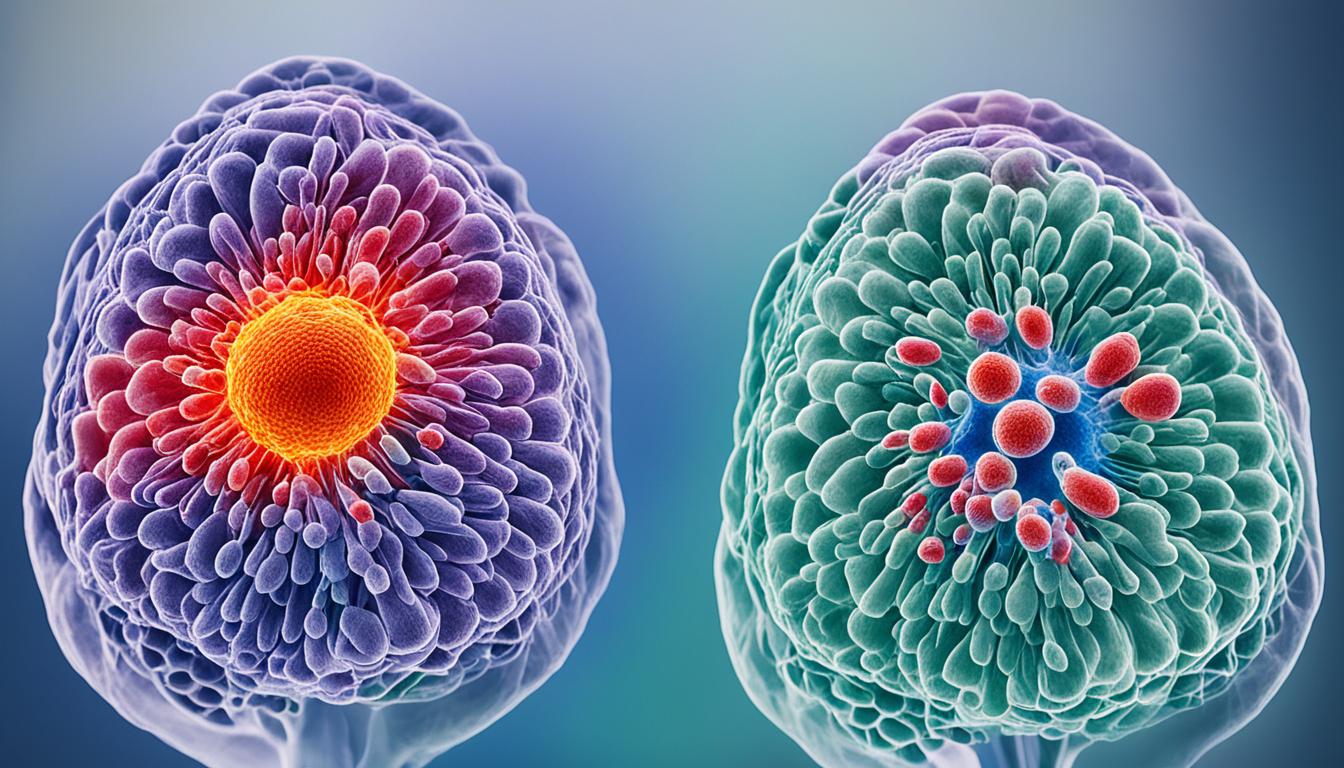BPH stands for benign prostatic hyperplasia. It’s also known as an enlarged prostate. This illness can really affect older men. It’s the top reason for pee problems in men.
With BPH, your prostate grows bigger, causing pee troubles. Men might need to pee a lot or feel like they must go right away. Their pee stream might be weak, and they might wake up often at night to pee. Some might not be able to fully empty their bladder. All these issues can make life hard for those with BPH.
The cause of BPH is a mystery. But, we think it’s linked to getting older and certain hormones. In particular, androgens like testosterone are big players. As men get older, their prostate gland can get larger. This growth causes the BPH symptoms.
Doctors check for BPH with your history, an exam, and tests. These can include checking your blood for a specific antigen and doing an ultrasound. They want to see if your symptoms are really from BPH or something else.
Medicine can help with BPH symptoms. This includes drugs that make the prostate’s muscles relax. Another type of drug makes the prostate smaller. But, these drugs might cause side effects and might not work for everyone.
Key Takeaways:
- BPH is a common issue that older men face. It causes issues with how they pee.
- Even though we don’t know its exact cause, getting older and certain hormones play a big role.
- Diagnosing BPH means looking at your past, doing checks, and special tests.
- For treatment, there are drugs that can help manage the symptoms but they come with side effects.
- Stem cell therapy is a new treatment that looks promising for making the prostate healthier and reducing pee issues in BPH patients.
Etiology and Pathophysiology of BPH
Benign Prostatic Hyperplasia (BPH) is a condition that involves many factors in its development. It’s linked to age and the levels of certain hormones, especially androgens. As males grow older, their prostate gland changes on a cellular level. This causes the gland to grow in size.
Inflammation is also tied to BPH. This condition shows a balance issue between cell growth and cell death in the prostate. Due to this, the prostate grows larger. Both the stromal and epithelial cells in the gland see an increase in number.
The smooth muscles around the prostate gland tighten more in BPH. This leads to many of the urinary symptoms. For instance, problems with starting urination and a weak stream. The condition is also linked to specific pathways like the EGF/STAT3 route.
It’s very important to understand what causes BPH. This knowledge is key to creating better ways to treat it. Researchers and doctors aim to design new treatments by studying the condition’s causes and effects.
Stem Cell Therapy for BPH: An Innovative Treatment Option
Stem cell therapy is showing great promise for those with benign prostatic hyperplasia (BPH). It can help boost prostate health and cut down on urinary issues. This method capitalizes on stem cells’ ability to heal and grow new prostate tissue.
Studies show stem cell therapy betters urinary symptoms and ups peak urine flow in BPH patients. These stem cells can turn into different types of cells in the prostate, aiding its normal operation.
Two main types of stem cells – from fat tissue and bone marrow – are used for BPH. They are injected into the prostate to precisely treat the problem area. Clinical tests confirm their safety and effectiveness in improving the prostate and lessening urinary issues.
Even so, more work is required to perfect how stem cell therapy is given and how well it works in the long run. Yet, it’s a hopeful option for those who want to avoid surgery or the side effects of some medications. It offers a way to manage BPH and better their everyday life.

